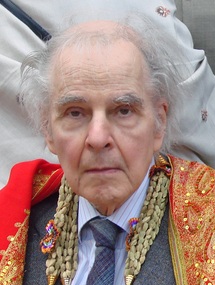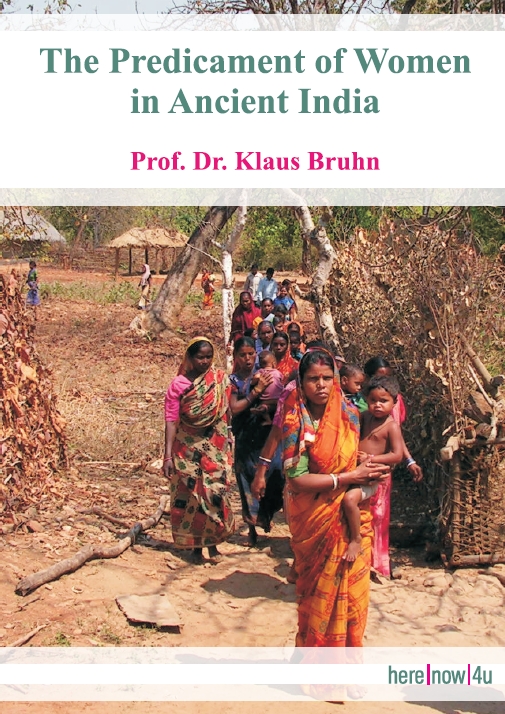We use as a supplement to our other sources a manual by a certain Tryambaka describing the ideal wife as seen by the orthodox. The rules for work and ritual of men have been explained in the ancient texts in detail. The role of women is included in those texts, forming a special section, but the relevant injunctions do not occupy much space. LESLIE writes (p.3): "Scholars from all over the world have spent lifetimes studying the contributions of the pandits of this rich classical past. Where then are the great debates on the status and role of women? Is there not a Sanskrit-text on the subject from within this orthodox Hindu tradition? Indeed there is." There is Tryambaka's manual: A useful survey of all the rules for women (embedded into the general ritual which is basically a ritual for men) was written in an 18th century work by a minister of this name in the court of Tanjor (Thanjavur).
Instructive are two illuminated Oriya manuscripts of the 17th and 18th c. describing the daily rulings for the wife (LESLIE figs.1-13, British Library). Fig.7 has a miniature showing a "Woman standing to serve her husband while he sits and eats."
Tryambaka's manual has no divisions, and our references will be given via LESLIE. The manual makes ample use of traditional stories quoted for the purpose of demonstration. We have used LESLIE repeatedly, and in the present section we are concerned with Tryambaka's treatment of the daily round (LESLIE 44-245).
Hinduism covers human life in its entirety with a network of observances (when to clean the teeth...). Apart from abstract discussions, Tryambaka explores the minutiae to their fullest possible extent. The observances are different for the two sexes, and they include also basic elements: does a woman worship god or does she worship her husband, does a women remarry like a widower or does she become an ascetic (saint)? The observances divide Hinduism as it were. If somebody is asked 'what is Hinduism', he has to make sure: 'Hinduism for women or Hinduism for men?' Husbands (men) have numerous ritual duties, e.g. organizing burials and looking after the pitris. But in particular they have rights; the rights define their existence.
In the present section we mention details from Tryambaka's description of the daily round. LESLIE subdivides the subject as follows: Before Dawn (51-101), At Dawn (102-155), Day (156-233), Evening (234-245). Summaries: vii-ix, 48, 47-50.
It is difficult to recapitulate in a systematic manner which work (etc.) of the wife is done during which division of the day. We first quote from p.51 "rising before dawn is prescribed for everyone [!] from the Vedic student to the householder..." (LESLIE). But Tryambaka also says, more specifically: "a woman should rise before her husband does." (52)
(Before dawn:) "In addition to most of the duties prescribed also for men [ablutions], a woman must prepare the day's quota of rice or millet, sweep the house and smear it with cow-dung, perform the ritual of threshold worship, and attend to the cows. When her husband performs the morning fire sacrifice, she assists him. LESLEY 47. At dawn, she makes an offering to the sun. In the morning while her husband studies the Veda and works at his profession she attends to her household duties. At midday, when he performs the five great sacrifices, she assists him. 47. When he eats, she serves him, eating what he leaves 47.” [Daily round continued...] Her final daily duties concern going to bed and sexual intercourse (LESLIE 236-245).
There are numerous rules: "If a woman makes love with her husband when her feet are wet, she deprives her husband of long life and goes to hell herself." (241) The frequent quotations include the lifting of prohibitions: "While it is proper for a wife to touch her husband's feet, therefore, the reverse is unthinkable except in the special context of love-making”. In that context “a variety of otherwise impossible positions for sexual intercourse " is permitted for husband and wife. (242)
To give an idea of Tryambaka's procedere we select the subjects of teeth cleaning (LESLIE 78-82) and eating (213-229). As students of Indian village life know, the teeth are cleaned with a twig ("which is chewed at one end to form a brush"). We mention a calender ruling: "One should avoid cleaning one's teeth on a day when offerings are made to the dead, on one's birthday, on the day of a marriage, when one is suffering from indigestion, when one is observing a vow, and on a fast day." (79). The explanation of the rules (teeth cleaning in this case) is difficult, and the matter becomes still more complex, if further rules for women are considered. If the husband is at home, the wife need not fast and accordingly not observe the prohibition on teeth cleaning [necessity of hygiene], but [like a PB] she should not clean her teeth when her husband is not at home [asceticism]. (80-81, 291; § 9.5). Teeth cleaning has something to do with personal pleasure and with hygiene.
Rules concerning the meals of husband and wife are numerous. "A man should not eat in the vicinity of his wife or his offspring will be without strength." (214-215, numerous parallels, but see 216 and fig.7). Again Tryambaka says "when she [the wife] is serving, she should not serve the food and so on by hand." (217). "When alms-food, salt and condiments are served by hand, whoever eats them becomes impure and whoever serves them will not go to heaven." (217). Further rules: "She should pay homage to her husband's feet before she eats." (221) "... the wife should eat what is left after her husband has eaten." (222) This is an important rule, and it belongs in a wider ritual context. The leftovers of the husband are 'prasad' (favour), just as food offered to a god is afterwards 'prasad'. The husband is here as elsewhere the god of the wife (224).
An indirect description of some duties of a housewife is found in the Kama Sutra (CHANDRA 79): "Like a good housewife she [the courtesan] used all the means at her command to economize. She collected the old and tattered clothes of the hero. She dyed them and distributed them among the servants."
In conclusion we quote an old saying: An ideal wife "is like a slave in her work, like a courtesan in bed, a mother with regard to food, and a counsellor in adversity." (LESLIE 214)
 Prof. Dr. Klaus Bruhn
Prof. Dr. Klaus Bruhn
 Title Photo Background:
Title Photo Background: